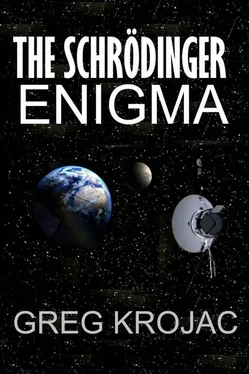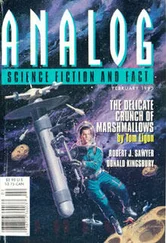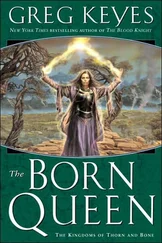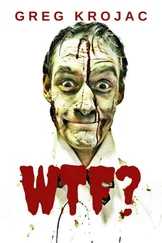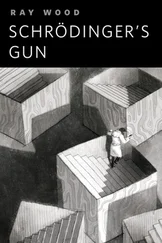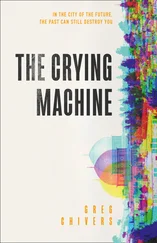For his part, Burt’s resistance to leaving the square was but a token gesture. He still played the cranky old man that the local children had considered him to be, but everybody involved knew it was just a game. In reality, he loved children and there was a mutual understanding between the local kids and the grey-haired old fellow with the handlebar moustache; a mutual affection that only masqueraded as fear. But now the only children left in the square were the Dunbar family’s twin girls, Kiera and Sierra, and they were far too young to be indoctrinated into the game. He knew very well that the group would have to leave and that he and Mary would go with them. But he felt he had to keep up appearances.
Jason wanted to deal with the practicalities of their proposed journey.
“I agree that we need to move on, but where to? We can’t just wander aimlessly around from pillar to post.”
Marshall Franks pulled a map of the city from his pristine leather rucksack and lay it on the coffee table. The extreme edges of the map flopped over the edge of the table, but it didn’t stop the group from having a more or less clear view of the layout of the city. A software engineer, the Jamaican would have felt more at home using Google Maps to present his idea, but the internet had stopped working and survivors of the pandemic were restricted to what was already on their laptop computers’ hard drives, and that, in turn, depended on how long the batteries lasted. The paper map was a perfectly good substitute, so Marshall didn’t see the point of wasting valuable battery life unnecessarily. The speed with which the energy and utility infrastructure had deteriorated had caught everybody off guard, and it was difficult to accept that it was just coincidence. It was almost as if it had been sabotaged. He decided to keep his conspiracy theories to himself and pointed to a location on the map. [7] Timeline for utility breakdown a bit confused. Change to reflect real timeline. ‘It’s almost as if the utilities had been sabotaged’
“Jason’s right. That would be pointless. However, I have a suggestion. We should make our way to the Potomac River. There’s bound to be a boat there that we could commandeer – well, steal, I suppose – and head towards somewhere safer. It could be safer than using the roads. As it is, we’re too vulnerable if we stay here.”
Jason agreed with Marshall.
“And more importantly, we don’t know what other survivors are like. They might be decent folk, but they could just as easily be crazy dangerous. This disease doesn’t care who it kills, and who survives seems to be down to chance. On land, we’re pretty vulnerable, never knowing who or what might be around the next corner. At least on the water we can keep a distance between us and anyone else, until we’re sure of their intentions.”
Xi-Wang Lin, the local pharmacist, still had concerns.
“Say we do get to the river and manage to borrow a boat…”
His daughter, Mai, interrupted him.
“It’ll hardly be borrowing a boat, dad. We’re not exactly going to bring it back. Once we’re out of here, we’re gone.”
“Please indulge me Mai. I said borrow because it sounds so much nicer than stealing. I don’t like to use the word steal. But I know we won’t be bringing it back. I just feel better thinking the intention is to return it one day – however impossible that may seem now.”
Marshall turned the map over to show the area surrounding the city.
“I suggest we head for DC.”
The rest of the group leaned in to get a better look.
“It’s the nation’s capital, where all the politicians are. And who always looks after their own asses in an emergency? Senators and Congressmen. Politicians. If anywhere is set up to survive this plague, it’s DC.”
Burt’s wife Mary nodded her head in agreement.
“I’ll be sorry to leave my home, but if staying here could put us in danger, I’m ready.”
Patrick Dunbar stood up and surveyed the small group of survivors.
“We’ve survived this long. We’ve seen our neighbours drop like flies and we’re still here, so I think it’s probably safe to assume that we’re immune to the disease, whatever it is. At least we’ve got that in our favour. But we do need to find others like us. Other Immunes. That’s another reason why we really can’t stay here for much longer. We’ll stagnate and maybe become bored or complacent. That’ll make us vulnerable. I suggest we use tomorrow morning to gather up supplies – food, water, clothes, and whatnot – and then set off in the afternoon. Is that ok with everyone?”
Everybody agreed with the plan – even Burt Prentice.
“Right, let’s get some sleep. We’ve a busy day ahead of us tomorrow. Xi, I know it’s kind of obvious, but can you pick out some medical supplies to take with us? I’m sure you know what stuff we should take with us.”
“No problem, Patrick. Mai and I can make a list tonight before we go to bed.”
Patrick shook everybody’s hands as they prepared to go home.
“Let’s wake up fresh tomorrow to a world of new hope. Goodnight, everyone.”
That was the cue for the neighbours to go back to their own homes to sleep in their own beds for the last time before setting off on their new adventure.
6 May – Infected 652,343,273 Dead 1,022,509
Sitara was dreaming of the previous year when she had visited her family in Pakistan. It had been a wonderful time, celebrating her parents’ thirtieth wedding anniversary, although she hadn’t much liked having to pretend that she was something that she was not. Alone with her parents she felt at ease, being herself, but at a semi-formal social event such as her parents’ party there were certain expectations to be met – those of her parents’ friends and colleagues; she was forced to switch to a completely different personality when in public back in Pakistan. As a Muslim woman, living and working in the west, and having a foot in both camps, she was now more inclined to lean towards the lifestyle of America. Initially, the battle between her Pakistani conditioning and the desire to fit in had been a struggle, but the USA was where her life was and – barring any major upset – she would be there until her dying day. This didn’t mean that she was abandoning or rejecting her Pakistani roots, but she needed to integrate with the people around her – compromises were both necessary and inevitable. She had Instagram and Facebook accounts – just as most people did – but she had two of each; one with restricted permissions for her closest and most trusted friends and one that was suitable for general consumption. She didn’t like having to live her life like this, but there was no other alternative. It’s how things had to be.
In her dream, she was just about to start dancing when her mind betrayed her and dragged her back to the real world, away from the festivities. Her eyes slowly opened and, when they had become accustomed to the daylight, she was forced to acknowledge the stark reality of her surroundings.
Normally, isolation was a strategy to stem the potential spread of any disease, but the numbers now were simply too large for preventative quarantine to be of any use. The world had never seen so deadly a virus spread so quickly. Now that the virus had taken hold, the wave of deaths had turned into a tsunami and had already passed the million mark. It would be much more efficient a use of CDC’s facilities and dwindling manpower to discover why Sitara was unaffected by the virus and try to make projections of how many would survive the onslaught and be left to rebuild the world.
Everybody who had been on or near the fishing trawler that fateful day was now dead – except for Sitara. Almost the entire population of Dutch Harbor had died. Progress had been made in classifying the disease – it was similar to the H1N1 influenza virus – but there was something different about it, something that the CDC couldn’t pin down. It was more virulent and deadly than even the Spanish flu pandemic of 1918 that killed an estimated 20 to 50 million people worldwide, a third of the planet’s population at the time. But the differences suggested that it hadn’t originated on Earth, which was obviously a ridiculous idea.
Читать дальше
